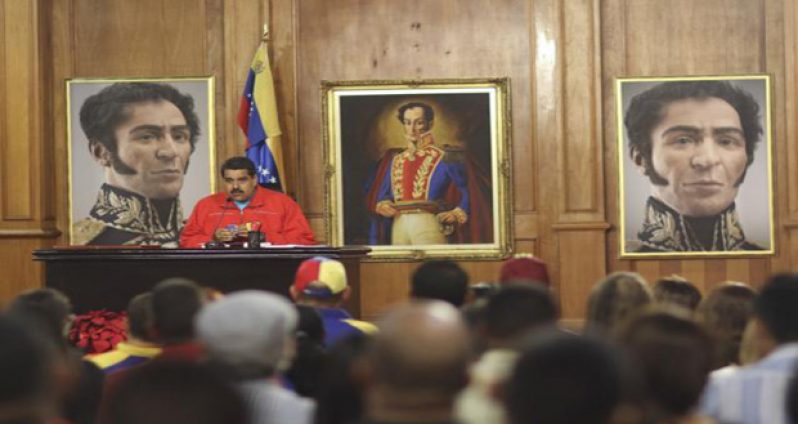THE right-wing coalition of parties known as the MUD, which won a supermajority in Venezuela’s National Assembly elections of Dec. 6, has laid out its plan for a radical departure from the policies and laws laid down over the past 17 years by the socialist government.Amid news of political infighting, on Thursday evening the MUD published on its website a list of laws its lawmakers plan to overturn once they go into office Jan 5, 2015. These include revoking price controls that have kept basic goods affordable; privatising key enterprises and services; giving foreign companies concessions for infrastructural works; strengthening local police forces; and making public media “independent,” or private.
These sorts of changes would dramatically transform Venezuela’s political and social landscape. The first proposal would revoke the fair prices and food security laws, which aim to provide Venezuelans with cheap access to basic necessities. The opposition says this would overcome the problem of shortages, which the government claims are due to smuggling and opposition-backed economic warfare.
Two other laws would open the way to privatization: One would reverse the nationalization of strategic enterprises and “nullify the declaration of public utility that threatens the property assets of private entrepreneurs.”
“The idea is to favour the revival of enterprises in key areas such as food, medicine, household cleaning products and personal hygiene,” the document explains.
The MUD plans to “encourage multilateral funding, which would be repaid by exploiting concessions, private companies associated with the state to develop large-scale projects.” Another law would “decentralize” public services, handing them over to local authorities and giving these the right to subcontract private service providers. The plan, according to the MUD, is to “suppress monopolies and reservations the state has made in the provision of public services to their detriment,… with strategic partnerships with private or mixed companies by granting concessions.”
A third law in this area would open up concessions for large infrastructure projects to foreign investors and multilateral financing institutions. The socialist government worked hard to end these types of deals with outsiders to enhance sovereignty and what it sees as foreign intervention into domestic affairs, especially from the United States, which has a history of meddling in the region’s politics to protect its usually capital-based interests in the country.
The MUD specifically mentions services such as roads, water supply, garbage collection, ports and airports, for which it plans to “allow and encourage multilateral funding, which would be repaid by exploiting concessions, private companies associated with the state, to develop large-scale projects and the high investment necessary for the (services’) best performance.”
Venezuela’s very real crime problem, which the MUD’s document calls “one of the most serious problems facing everyday citizens in Venezuela,” would be tackled, according to the MUD plan, by giving more power to municipal and state police forces, which are often controlled by opposition local governments. In 2002, it was municipal police in Caracas that played a key role in the failed U.S.-backed coup attempt against then President Hugo Chavez, who had begun a socialist revolution three years earlier. In terms of the media, the opposition majority in the National Assembly proposes a law to “end hegemony” in the public media and ensure the “independence” of those in charge of those media outlets. The MUD claims these changes, which were originally approved by in the constitution by the public, will lead to “a better quality of life.” (Source: Telesur)



.jpg)








